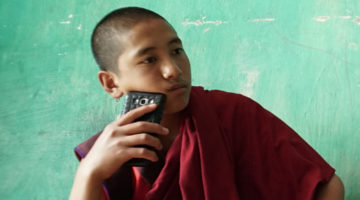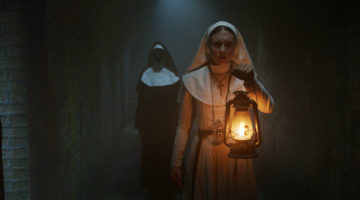Review: The Boy and the World
The animated film The Boy and the World was something of a surprise nominee for Best Animated Film at the Academy Awards announcements. But it was not entirely unheralded because the film was already set to open at the TIFF Bell Lightbox after playing the festival circuit long before the surprise nomination.
The Boy and the World is a crudely drawn animated film, which appears similar to fellow nominee Don Hertzfield’s World of Tomorrow, but feels also quite like Hertzfield’s Rejected (though far more earnest and less removed). Alê Abreu’s film opens on a solitary red dot, which gradually pulls out to reveal a kaleidoscope of colours and whimsical images.
But it all begins with a solitary red dot, which seems to match the form of the film, which is an emphasis on minimalism, but makes its point very forcefully. The film, once it gets going, presents a clear country versus city dynamic, and in essence seems to resemble a children and adult’s version of Gabriel Mascaro’s Neon Bull, but a little more whimsical and without the surreal element. Instead, we get images of machinery in work, a scary worker’s paradise that seems to rankle the unnamed protagonist. Indeed, very much is implied in this film and this includes names and dialogue, which may be based on Portuguese, but comes off like nonsense words.
But then, it does not really matter as the rich / poor divide and anti-capitalist Brazilian message is done in a manner that provides alternating cute and scary images for younger audiences, and a recognizable and relevant social message for adults to savour and perhaps later explain to the younger ones in the course of watching the film.
Lastly, the ending is an absolute thing of beauty. The Boy’s father and a very scary train create a tableaux that puts a bow on a narrative that at times seems to less than uplifting. This ending allows for some happiness to intrude into what could have been a sad and scary story, (some of the means of production scenes shot in total darkness are downright terrifying). Furthermore, the establishing final scene returns the story of the boy to where it begins, making the word seem rather small and, quite frankly, slightly more open to future possibilities and to a sense of wonderment.
[star v=35]






